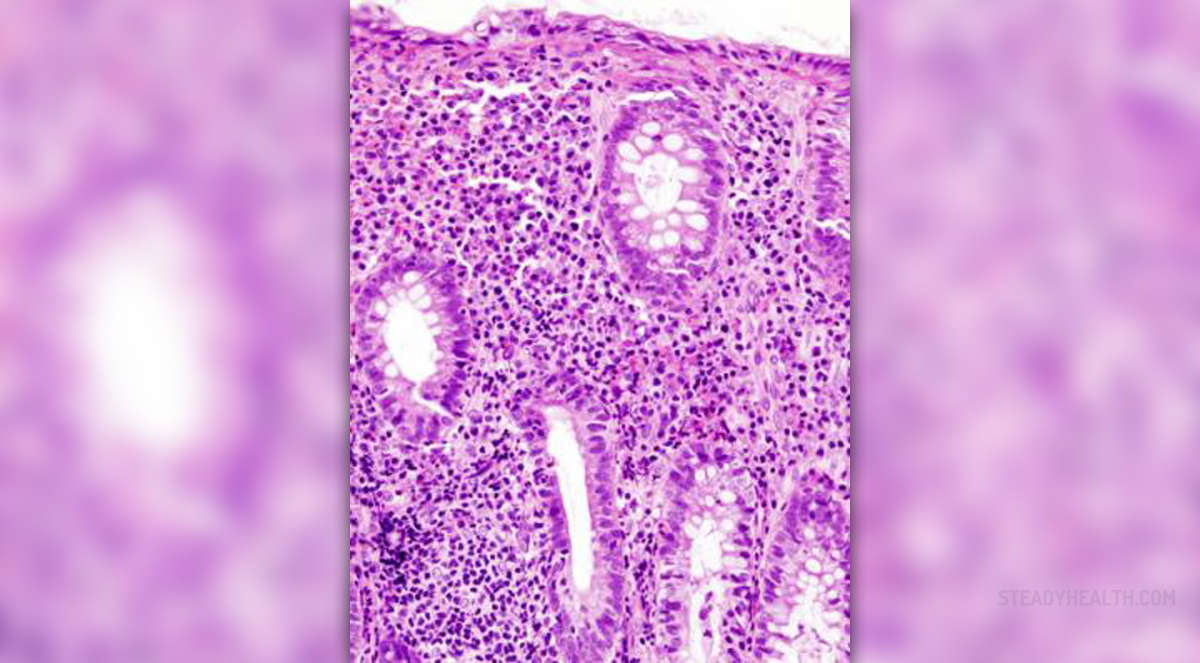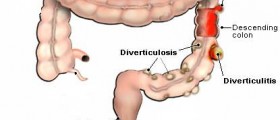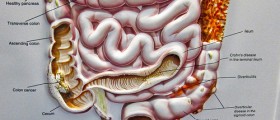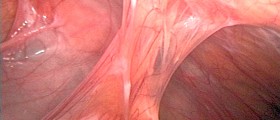
Ulcerative colitis is a type of inflammatory bowel disease. As a form of colitis, a disease of the intestine, ulcerative colitis is characterized by ulcers, or open sores, in the colon. Ulcerative colitis is often confused with irritable bowel syndrome, which is less serious condition. It is estimated that about 0.1% of United States population suffers from ulcerative colitis. The main symptoms of the disease are rectal bleeding and diarrhea. Symptoms depend on the location of the ulcers and the extent of inflammation. The symptoms usually include inflammation of the rectum, pain, abdominal cramps, weight loss, inflammation of the colon, fatigue, fever, dehydration and night sweats. The causes of ulcerative colitis and very similar Crohn's disease are yet unknown. This disease is not contagious and it seems like it is some sort of autoimmune disorder, triggered by abnormal activation of the immune system in the intestines. However, the susceptibility to abnormal activation of the immune system is genetically inherited. Like Crohn's disease, ulcerative colitis can be devastating and sometimes can lead to life-threatening complications.
Surgery for ulcerative colitis
Surgery for ulcerative colitis is performed on 25 to 40% of patients. The surgery is performed to eliminate the risk of cancer, massive bleeding or rupture of the colon. Surgery for ulcerative colitis generally involves removing the entire colon and the rectum. The proper candidates for the procedure are patients with fulminant colitis and toxic megacolon, who are not responding to medications; patients with long standing pancolitis or left-sided colitis, and patients with long history of severe colitis.
The surgery is performed by making a small opening on the abdominal wall and the end of the small intestine is attached to the skin of the abdomen to form an ileostomy, so that the stool collects in the bag that is attached over the ileostomy. More advanced surgical technique involves continent ilieostomies where a pouch is created from the intestine, to serve as a reservoir. The pouch is emptied with a small tube and patients don’t need to wear collecting bags.
Complications of surgery
As any other kind of surgical procedure, surgery for ulcerative colitis bares its own risks. The most common complications of this surgery are small bowel obstruction and pouchitis. Small bowel obstruction is associated by cramping and abdominal pain, nausea and vomiting. This complication is relatively easy treated with intravenous fluids and rest. In more serious cases, surgery is required to remove the obstruction.
Pouchitis is an inflammation of the pouch, characterized by diarrhea, rapid bowel movements, abdominal cramps, fever, and joint pain. Treatment for pouchitis lasts from three to six weeks and involves the use of antibiotics. In rare cases, pouchitis may become chronic and demand a long-term treatment.

















Your thoughts on this
Loading...